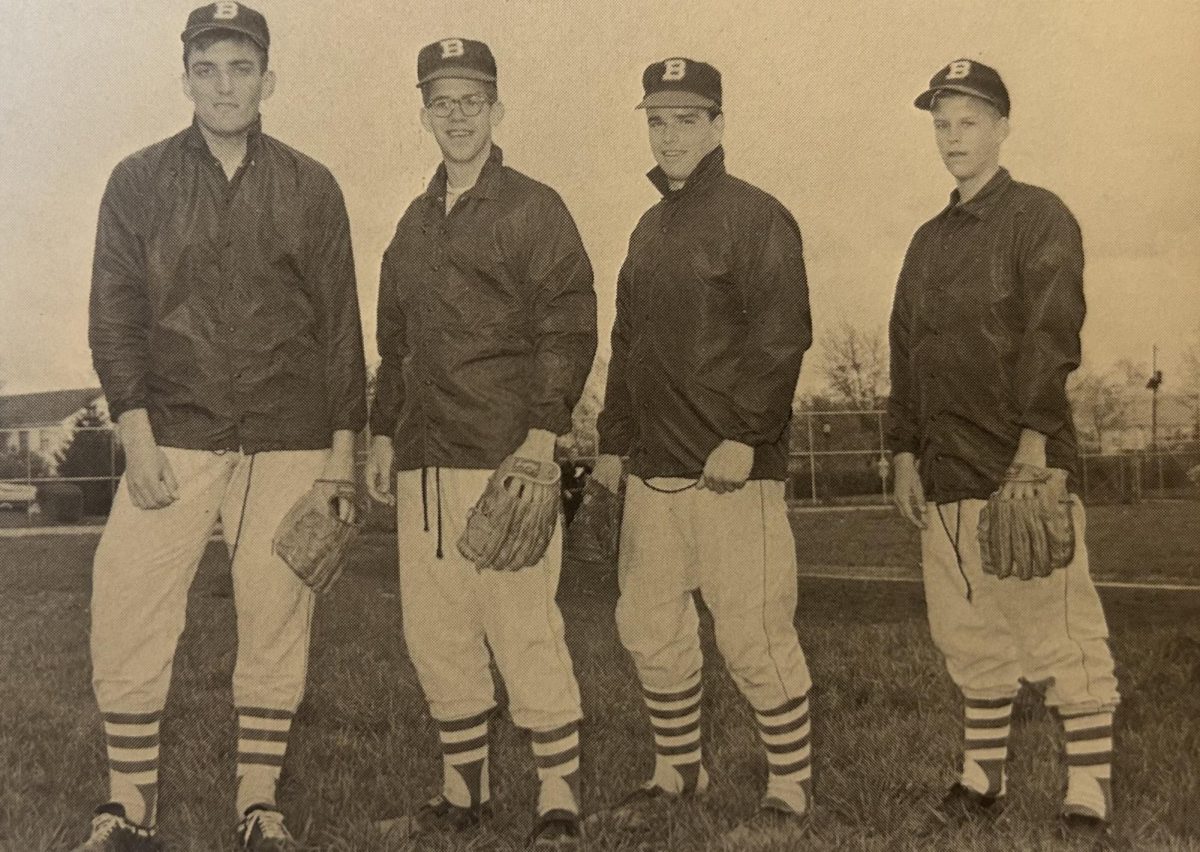Read more about cheating in Bexley here and here.
*Names have been changed
In an age where cheating is just a click away, teachers and administrators are coming up with innovative strategies to safeguard academic integrity. As policies evolve, educators strive to uphold fairness while nurturing a culture of honesty and accountability among students.
High school teacher Arnold Fitz* said it’s important to prevent academic dishonesty because it causes students to miss out on learning problem solving skills, analytical skills and creating their own ideas.
“If you cheat, you don’t learn the skills you need to learn,” he said. “Once you get into the real world, even if it doesn’t seem like it, people are held accountable.”
This year, Fitz said he and other teachers have experienced an increase in cheating incidents, specifically with students using AI.
English teacher Michelle Rogers said AI is contributing to the amount of violations in academic integrity. Rogers said she uses a program called Turnitin that can check work for plagiarism.
Fitz said that he alternates versions of the same test to ensure students can’t cheat. However, the amount of effort students put into cheating is the same as doing the assignment, he added.
“Generally speaking, you put forth as much energy to cheat as you would if you actually did the assignment,” Fitz said.
Principal of Secondary Schools Jason Caudill said as technology used to cheat continues to advance, so does the technology used to prevent such academic dishonesty. Teachers are able to detect certain signs of plagiarism and cheating with programs such as Turnitin, he said.
“At the high school level, they use some technology-based tools to expedite the process of evaluating possible cheating by flagging content they should look at more carefully,” Caudill said.
Looking at the issue of academic dishonesty as a whole, Caudill said he believes the prevention of cheating starts with the human element.
Many students cheat out of fear of disappointing their parents with a bad grade, Rogers said.
“I think that as long as parents put pressure on kids to have perfect grades, academic dishonesty will continue,” she said.
Rogers said her advice to a student feeling the urge to cheat would be check in with a teacher if they’re uncertain with the material to be more confident in their abilities.
Caudill explained that district protocol splits cheating offenses into minor and major violations. He said an example of a minor violation could be accidentally forgetting to make a citation or cheating on a small or ungraded assignment.
“With a minor violation, we’ll have a conversation with the student to figure out why they felt the need to cheat and try to prevent them from ending up back in this type of situation,” he said.
Caudill said major violations relate more to exams or large projects.
“With the first major violation, a student can redo the assignment with a maximum grade of 59%,” he said.
Caudill explained larger consequences begin when students commit a second major offense. This causes the student to lose the privilege to participate in athletics or theater, he added. However, he said the harshest penalty is extremely difficult to come back from.
“There’s also a requirement that the student drops the class and receives a withdraw fail,” Caudill said. “It’s heartbreaking to have to do that.”



















